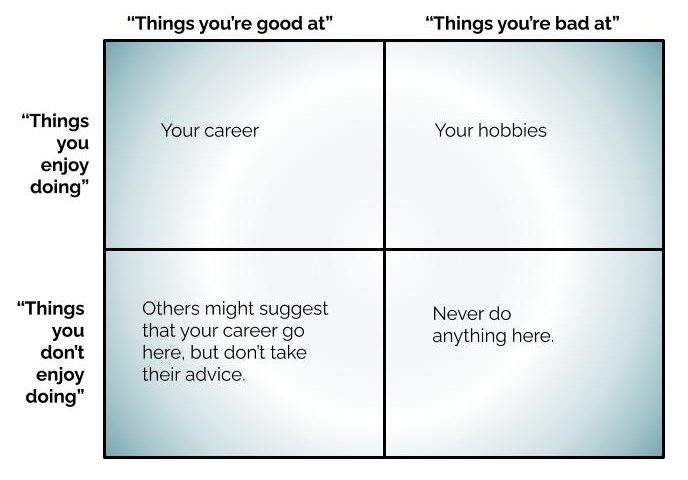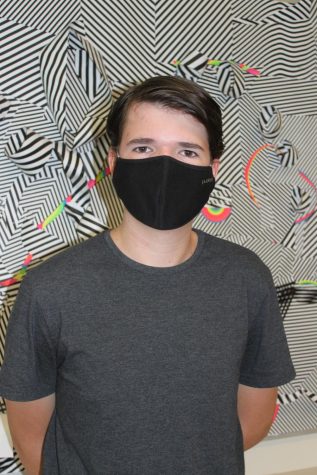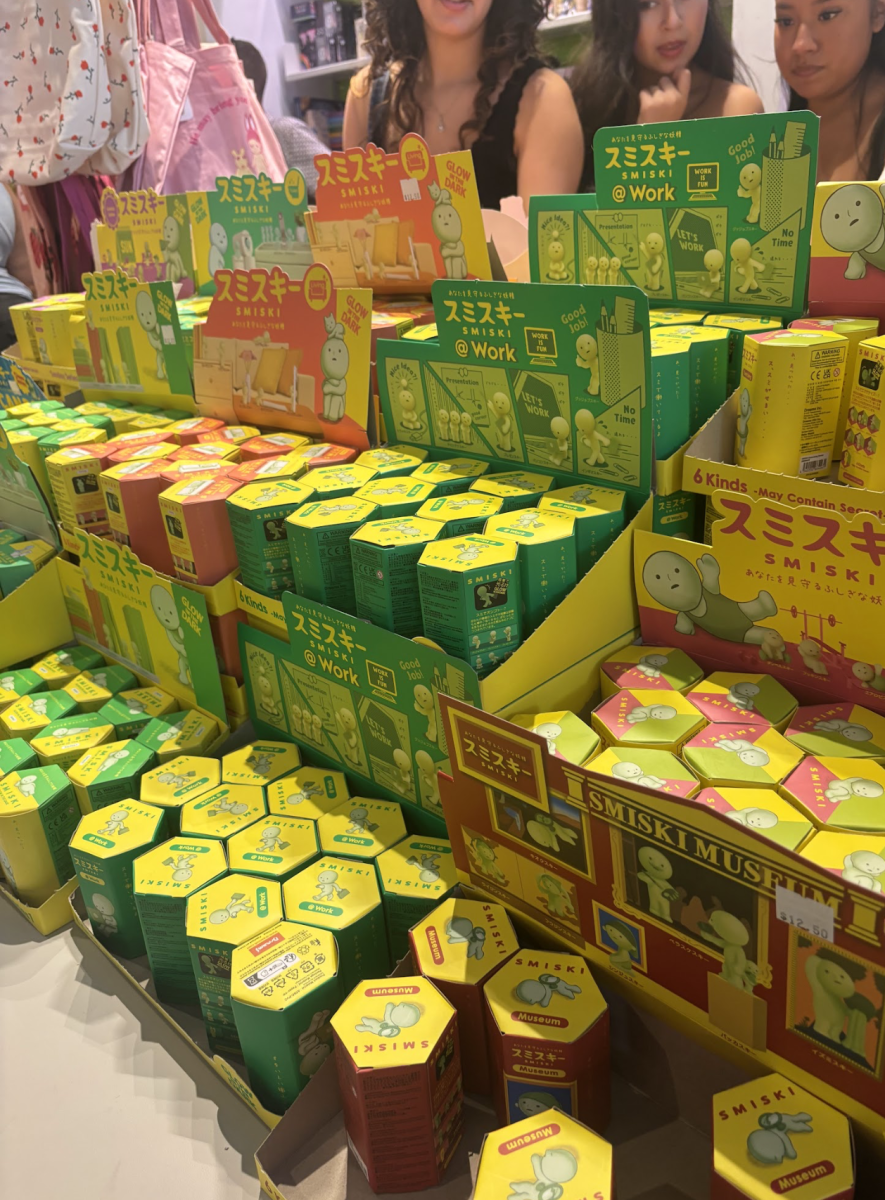Clerking for RBG: Alum Heather Elliott on Her Extensive Law Career
Photo courtesy of Heather Elliott.
Heather Elliott, a professor at the University of Alabama, former clerk for Ruth Bader Ginsberg, and Chamblee alum.
October 21, 2020
Chamblee boasts many impressive alumni, who have gone into fields such as finance, journalism, diplomacy, and politics. Alum Heather Elliott (Class of 1986) would go on to not only become a successful lawyer but also clerk for Justice Ruth Bader Ginsburg (RBG) in the Supreme Court. From reviewing court petitions to assisting RBG in writing judicial opinions, Elliott’s law career began in DC, but her education started at Chamblee.
Elliott’s Chamblee Experience
At Chamblee, Elliott was very studious. Along with being one of five students to receive a 4.0 GPA, she was the editor-in-chief of The Blue & Gold, President of the Science Club, and a member of many other organizations, including the now-defunct Latin club. Elliott also played soccer and ran cross country throughout her high school experience.
What truly stayed with Elliott after graduation, however, was not the grades she got or the clubs she joined, but the teachers who mentored and inspired her.
“I took AP English with a teacher named Linda Laws who sadly passed away,” said Elliott. “Francis Dubner was the director of the gifted program, and sadly, she passed away this spring. And they were both very influential people. My Latin teacher, Judi Holley, was very influential. So I think it was more who I took classes from [that influenced me] and how they inspired me to do my work than it was the particular subjects.”
Law is known to be a difficult field, especially because the cases have the power to influence daily life. Elliott found that her years on The Blue & Gold’s staff gave her the skills to take on such impactful work.
“I think the kind of questions you have to ask in writing newspaper articles help you be more analytical and being analytical is great for law school,” said Elliott. “And obviously, learning how to write quickly and [turning] things around is a good skill for lawyers to have. […] The older I get the more I realize that it’s unusual to be able to turn out a pretty decent first draft. And I can do that pretty well—which was great for me when I was a practicing attorney.”
Serving as a Law Clerk for Garland and RBG
While in high school, law school had no appeal to Elliott. It was not until she began working on a Master’s degree in political science that she considered law as a career. A pre-law advisor sparked her interest in the field, which later led her to the University of California, Berkeley.
During and after her education at Berkeley, she clerked for both Judge Merrick Garland in the DC Appellate Circuit and Justice Ruth Bader Ginsburg in the Supreme Court.
“I started working for Judge Merrick Garland of the DC circuit. You may recognize that name because he’s the judge that President Obama nominated to be on the Supreme Court and that the Republicans said could not be confirmed because it was an election year, which echoes of today,” said Elliott. “I clerked for him for a year, and then I started with Justice Ginsburg the following year.”
While both are appellate courts, Elliott worked on different parts of the law processes at both. In the DC circuit, any trial in a lower court had the right to appeal to the circuit, meaning Elliott’s job under Judge Garland was to work on a quarter of all cases Garland was assigned to.
However, the Supreme Court decides which petitions submitted see the court, usually selecting petitions that give the court a chance to unify laws that have been given different meanings across the United States.
“The main area that [the Supreme Court] focuses on is situations where different parts of the country are reaching different results under the same laws,” said Elliott. “You have one part of the country that says, ‘the Clean Air Act section X means this,’ and in the other part of the country, the same section means the opposite. […] [This] means that what result you get under the law is an accident of where you are located geographically rather than the merits of your case, and so the Supreme Court focuses on cases where it can unify the law across the whole country.”
Along with helping draft oral arguments and writing judicial opinions, clerks are responsible for going through the 7000 to 8000 petitions the Supreme Court receives per year. While RBG was known for her night owl work schedule, the clerks worked nearly as many hours.
“[The experience] felt like I was on this roller coaster, […] and finally in April, we had the last sitting [in the Court],” said Elliott. “Some days I felt like I was never going to get done, and then by the end, it was much more manageable.”
Although she only clerked at the Supreme Court for one year, the experience gave Elliot substantial insight into the world of law.
“[Judge Garland and Justice Ginsburg] made me incredibly better at my job, [regarding] the level of analysis that both of them pushed me to achieve,” said Elliott. “You know, I was a really good law student, right? Because you don’t get to do this job with the Supreme Court unless you’re a really good law student. But even then, I felt like law school had been basically [the equivalent of] 10th grade, and I had been pushed right into a postdoc.“
Along with giving her expertise and teaching her how to balance immeasurable workloads, Ginsburg’s personal relationship with her husband inspired Elliott in her own relationships.
“The big thing from Justice Ginsburg […] was getting to see her relationship with her husband Marty. If you’ve seen the documentary or the movie, you know that they had a really special relationship, and getting to see them together was really magical,” said Elliott. “When I married my now-husband, we got a very sweet note from Justice Ginsburg, that said, ‘Best wishes as you embark on life’s most important partnership.’ And I think about that a lot. I think about the two of them and how sweet they were to each other.”
Life After the Supreme Court
Between clerking and becoming a full-time Professor of Law, Elliott worked briefly as an appellate litigation associate for a law firm in Washington, DC.
“It was kind of like being an intellectual gladiator, you know—if I could come up with the killer argument and win,” said Elliott, referring to her time at the law firm.
After her time working in litigation, Elliott actualized her long-awaited dream of becoming a law professor. She currently teaches at the University of Alabama, specializing in civil procedure, land use law, and water law.
“One of the things I love about my current job is, while I work really hard and I have a lot of things that I’m busy with, it’s largely my own schedule,” said Elliott. “So, if I want to work more one day and less the next day that’s totally my choice. I don’t have a partner standing over my shoulder saying, ‘Why didn’t you bill anything today?’”
Despite not currently practicing law, Elliott’s diverse experiences from clerking to litigating allowed her to bring her practical knowledge to the classroom.
Elliott’s Perspective on COVID-19
The ongoing COVID-19 pandemic has affected the way Elliott teaches her law classes, along with having the potential to change certain areas of the law as a whole.
Right now, at the University of Alabama, Elliott is teaching her classes in a hybrid manner, with some students attending in-person and other students attending virtually.
“I’m doing what’s called hybrid teaching. […] There are 63 students in my class, and they were all given the option to stay home if they wanted,” said Elliott. “And then the rest of them are in a classroom that’s way bigger than [normal]. We all have masks on, and there is Plexiglass between each row of seats. I ‘Zoom’ in the students who are at home and then teach the class. There’s a webcam that’s focused on me so that the students at home see me giving a lecture.”
One thing hybrid teaching has made more challenging is the practice of ‘cold calling’ students during class.
“One of the things that law school is famous for is called cold calling, where I randomly pick students as my victims each class session and call on them to help me explain the material,” said Elliott. “And I make sure that I include the students at home when I’m doing that.”
Elliott believes the COVID-19 pandemic has the potential to create permanent changes to the practice of law as well. For example, judges have considered interviewing their prospective law clerks online instead of in-person, which happens to make the process more accessible.
“[One change could be] whether judges will do their interviews for law clerks online going forward instead of in-person. [In-person interviewing] is a problematic practice that judges have always insisted on,” said Elliott. “It discriminates against the students who can’t afford to pay the plane ticket to fly to interview with the judge. And I think we’ve all learned that it’s almost as good as being in-person to do Zoom or Skype or FaceTime.”
Overall, Elliott hopes to see an improvement in healthcare in the wake of the pandemic.
“I hope that we come out of this at the other end with a recognition that we need to reinvest in our public health system,” said Elliott. “The idea that it’s become this political statement to not wear a mask and endanger other people, I find very frightening. So I hope that we will come out the other end with some efforts to reinvigorate the government as a positive force in people’s lives.”
The Supreme Court Today
With the recent death of RBG, President Trump and many other Republicans are trying to fill her seat by confirming Judge Amy Coney Barrett before the upcoming presidential election.
Elliott disagrees with this decision, pointing out RBG’s dying wish and the similar scenario that occurred in 2016 under President Obama.
“Justice Ginsburg said on her deathbed that she wished they wouldn’t fill her seat, that they would wait for the election,” said Elliott. ”[Also] the Republicans said in 2016 when Justice Scalia passed away, that they wouldn’t fill a seat during an election year, and that was eight months before the election, and we’re now three weeks from the election, and they’re rushing to fill the seat. It’s incredible hypocrisy.”
According to Elliott, this turn of events is very damaging to American politics.
“I think one of the most harmful things to the Supreme Court is the way that [the Court] has come to be perceived as merely a group of people that vote based on their political preferences, and pushing through this nomination right now just exacerbates that problem,” said Elliott.
Elliott’s Advice for Students
Elliott recommends that students interested in legal careers aim to get the highest LSAT score possible. The LSAT (Law School Admission Test) is a standardized test given to prospective law school students in order to determine their admission to law programs.
“One thing that would be really, really beneficial if you want to go to law school is work on [getting] as high an LSAT score as possible,” said Elliott. “Because it’s really kind of silly and scary how much the LSAT score drives what schools you can get into and whether you get scholarship money.”
Elliott has some unique advice for students looking to perform better on the LSAT.
“Oddly, one of the best things you could do to get better at taking the LSAT is to learn to play bridge, the card game. Because the kind of analysis and analytical skills that are required to be a good bridge player are tested on the LSAT,” said Elliott. “Taking Latin is excellent, not just because there’s a lot of Latin that pops up in law school but also […] lots of vocabulary that’s important to the law has Latin roots.”
Elliott also urges students to not go directly from college to law school but to take a gap year or two instead.
“I would also very strongly advise—and this is from my perspective of seeing students as a law professor—don’t go straight from college to law school. Most people do far better in enjoying law school […] if they do something else in between,” said Elliott.
This gives students the opportunity to explore other interests and find out if going to law school is something they would actually enjoy.
“Go do Teach for America for two years after college, go work for a bank, go serve in the Peace Corps, go run your own landscaping company—just do something else for a couple of years after college and before law school. You will do much better in law school if you do that,” said Elliott. “I’ve heard people say ‘But I’m afraid if I do that, I’ll never make it to law school.’ Well, that should tell you something: if you go off and do something else, and you don’t want to go to law school, then don’t go.”
After graduating from law school, Elliott suggests an ‘alignment chart’-like system to guide her students on choosing careers.

“I tell my students that it can be helpful when you’re thinking about how your career should go [to consider this]: If you have on one axis, things you’re good at and things you’re bad at, and on another axis, things you enjoy doing and things you don’t enjoy doing, the trick is to find what hits the box which is things you’re good at and that you enjoy doing,” said Elliott.
Elliott has followed this advice with her own teaching career.
“The trap is getting pushed into things you’re good at that you don’t enjoy doing because people say, ‘You’re so good at it. You should do that,’ and you’re like, ‘But I don’t enjoy it.’ So don’t let people push you that way, stick with the box [of] things you enjoy that you’re good at,” said Elliott. “I’m just really lucky that I’m good at teaching, and I really enjoy it, and I’ve been able to put my career in that box.”












